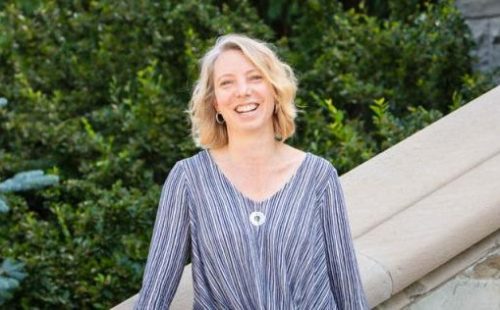
A new national conservation research partnership to be based at the University of Guelph and designed to help Canada reach its biodiversity protection and conservation goals is among U of G research projects receiving new funding from the Social Sciences and Humanities Research Council (SSHRC) today.
In total, U of G researchers will receive nearly $4 million in new Partnership, Partnership Development and Insight grants from the federal agency.
U of G researchers were also awarded $1.65 million in new SSHRC doctoral and post-doctoral fellowships and Joseph-Armand Bombardier Canada graduate and master’s scholarships.
The announcement was made at the University of New Brunswick by Kirsty Duncan, federal minister of science and sport.
“University of Guelph research continues to extend and apply knowledge to improve lives in many ways,” said Malcolm Campbell, vice-president (research). “These projects spanning conservation, rural communities, and lives and livelihoods are telling examples of how our researchers are making meaningful contributions in the social sciences and humanities.”
Under a $2.5-million Partnership Grant, a new Indigenous-led Conservation Through Reconciliation Partnership (CRP) will involve more than 30 policy, community and research collaborators from across Canada.
The partnership will be hosted by U of G and two Indigenous-led conservation organizations: the Iisaak Olam Foundation (IOF) and the Indigenous Leadership Initiative.
The CRP is intended to ensure that Indigenous knowledge systems and law are incorporated in plans to reach domestic and international targets for protected and conserved areas in Canada, said Prof. Robin Roth, Department of Geography, Environment and Geomatics.
Under the United Nations Convention on Biological Diversity, Canada committed to conserve at least 17 per cent of terrestrial and 10 per cent of coastal and marine areas in protected areas by the end of 2020.
A report published last year by the Indigenous Circle of Experts (ICE) – an advisory group on Indigenous-led Protected and Conserved Areas – provided recommendations intended to help Canada reach its protected area targets and work toward nation-to-nation reconciliation.
“It will be very easy to achieve Canada’s conservation goals if reconciliation can truly happen between the Crown and Indigenous nations, who since time immemorial have continued to steward and protect their lands and waters,” said Eli Enns of IOF, who is a member of the Tla-o-qui-aht First Nation in British Columbia and former co-chair of ICE.
Roth said the SSHRC funding “will allow the partnership to effectively weave together scholars, Indigenous Peoples, and organizations and conservation practitioners to support the establishment of Indigenous Protected and Conserved Areas (IPCA’s) and to help transform existing conservation practice to hold up Aboriginal and treaty rights.

“This research and coalition will be the catalyst needed to radically change how we practice conservation in Canada.”
She and departmental colleague Prof. Faisal Moola will co-lead the partnership along with four Indigenous leaders, including Enns. They will work with an Elders and Knowledge-Holders Senate and three advisory panels.
As part of this partnership, Roth and Moola will also receive $95,000 over two years from Environment and Climate Change Canada for a project to incorporate Indigenous biocultural indicators into tracking and reporting of protected and conserved areas.
Referring to U of G collaborations across Canada, including projects incorporating Indigenous knowledge and elder wisdom, Guelph MP Lloyd Longfield said, “There are so many diverse studies emanating from Guelph, all focused on improving life through multidisciplinary research. The goals of these studies align very well with the Government of Canada’s vision of balancing environmental, economic and social interests to create a more equitable society informed by science-based decision-making.”
Other U of G projects receiving SSHRC funding:
Insight Grants
- Prof. Jeffrey Spence, Psychology: quantifying uncertainty in research studies caused by measurement error
- Prof. Andrew Hathaway, Sociology and Anthropology: effects of cannabis legalization on use and behaviour
- Prof. Evan Fraser, Geography, Environment and Geomatics: the digital agricultural revolution and rural communities
- Prof. John Russon, Philosophy: phenomenology and ethics
- Prof. Susan Nance, History: 20th-century wild animal trainers
- Prof. Ataharul Chowdhury, Environmental Design and Rural Development: social media and agricultural communities of practice
- Prof. Myrna Dawson, Sociology and Anthropology: measuring gender-related killings of women and girls
Partnership Development Grants
- Prof. Philip Loring, Geography, Environment and Geomatics: community innovation for sustainability and food security
- Prof. Deborah Stienstra, Political Science: disability and livelihoods in Canada
- Prof. Kim Wilson, Family Relations and Applied Nutrition: sexual orientation and gender identity in gerontology